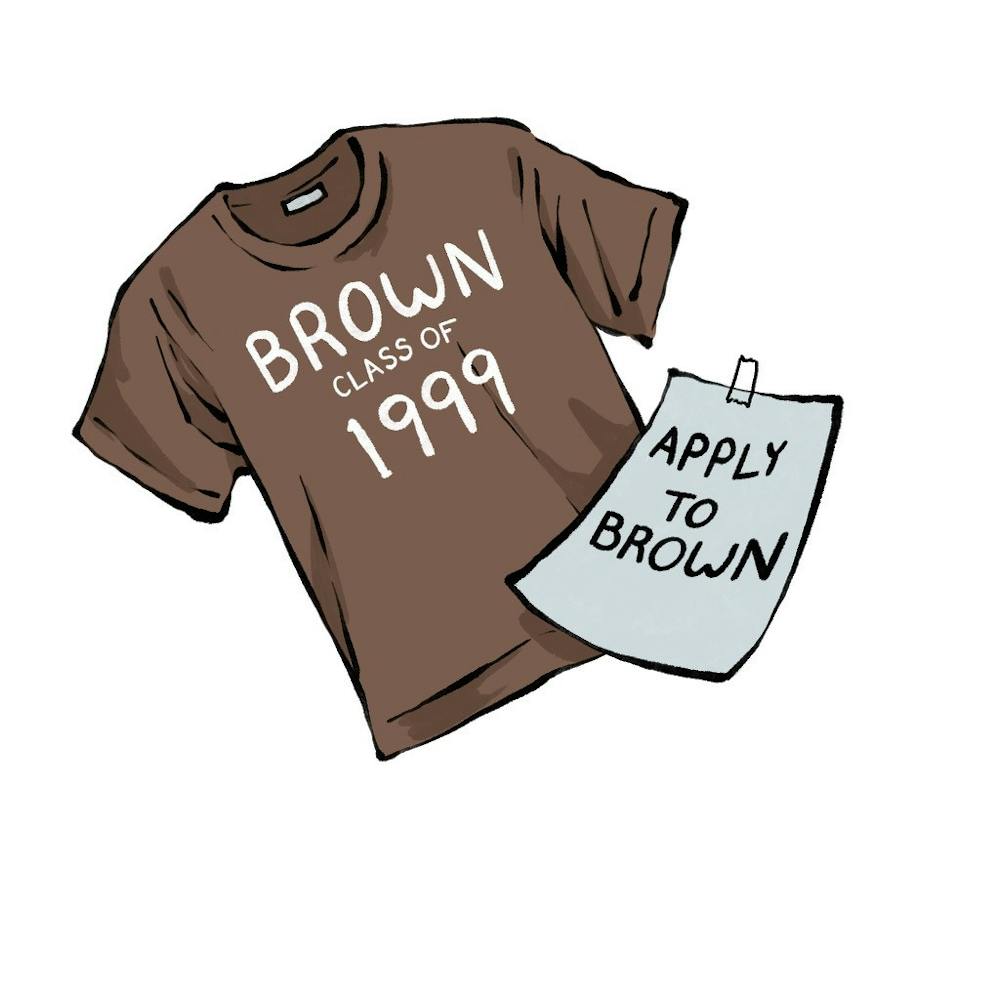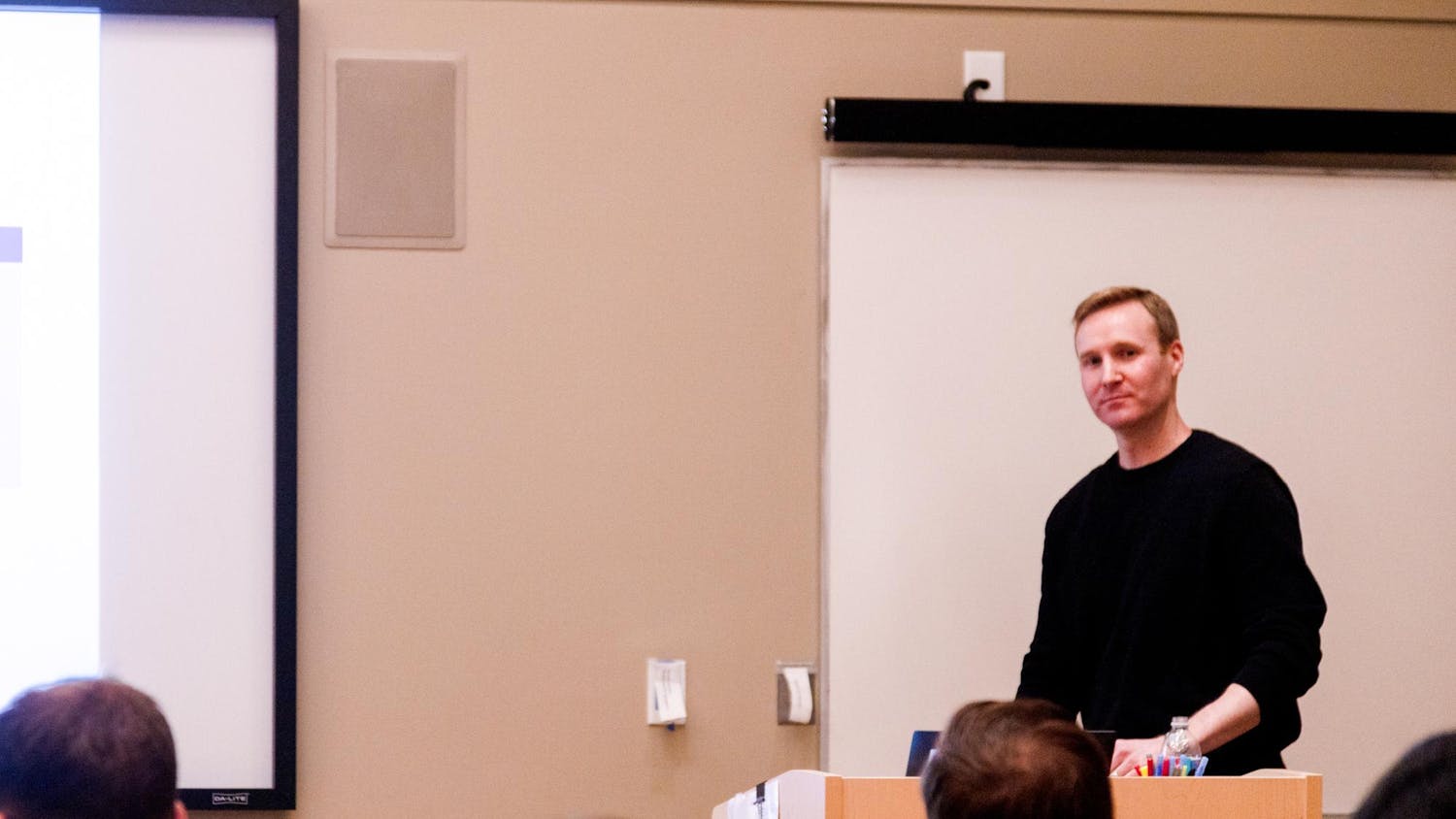Alumni interviews for prospective students will not resume following their suspension at the outset of the COVID-19 pandemic, according to an email from the Office of College Admission sent to alumni on Oct. 11. Applicants will retain the option to submit a two-minute video introduction, the email said.
The email additionally stated that the University would establish new approaches to alumni-student engagement and offer a variety of opportunities for alumni connection at different stages of the admissions process, primarily through its new Alumni Ambassadors Program.
Previously, alumni interviews allowed applicants to meet with an alum to learn more about Brown and share additional information about themselves to contextualize their application, The Herald previously reported.
But Dean of Admission Logan Powell noted that when interviews were last offered during the 2019-20 application cycle, more than 8,000 applicants who requested an interview did not receive one. Many of those students, he explained, also were not made aware that they could not interview with an alum until it was too late to create a video introduction.
The applicant pool for the 2021-22 cycle increased by 38%, expanding the gap between the number of applicants and the number of alumni able to conduct interviews, Powell said.
“If there’s an opportunity available, it should be available to everyone,” he added.
Powell also cited alums’ concern over the increasing number of interviews and frustration over their interviewees not receiving acceptance to the University as factors in the decision to eliminate the program.
The applicant pool for the 2019-20 application cycle, when interviews were last offered, was approximately 37,000 applicants. Powell noted a subsequent spike to 46,568 applicants in the 2020-21 cycle. The following year, the pool increased again to over 50,000 applicants.
While Powell was hesitant to draw a direct correlation between changes in admission policies and growth in the pool, he said the jump in applicants could illustrate increases in accessibility for students that the University would like to continue.
Cassandra Coleman ’26, who submitted a video introduction in her application, said she appreciated that the process leaves “a lot more room to make it your own.” Still, she said she would have supported keeping the alumni interview as an option because students might not “have the resources to make a video, but they want to present themselves a certain way.”
But Powell clarified that students can make the video introduction on their cell phone, a tool that the majority of applicants have.
Mandy Tachiki ’95, the former Alumni Interviewing Program global chair, said she “wasn’t too surprised” when the change was announced. “The admissions office really did do some surveying and talking to a lot of people just to think about the equity of the process.”
Tachiki noted that the Alumni Interviewing Program frequently got complaints from interviewers about prospective students opting for interviews and then refusing to schedule them or engage meaningfully with the interviewer.
“There was some discontent about spending the time trying to do this student connection when some people weren’t interested,” she said.
While Tachiki felt that the changes were “a little sad” due to her extensive interviewing experience, she agreed with the decision because “the applicant pool is so huge” and “technology has improved a lot.”
The University’s email explained that the new Alumni Ambassadors Program will “experiment with several new mechanisms for prospective students to engage meaningfully with alumni.”
Powell noted that the University would also host alumni panels for admitted students, first-generation students and other groups in the near future to keep alumni and students engaged, though he did not provide a specific timeline.
“Our alumni are incredible,” he said. “The stories of success and the strength of the community and the diversity of perspective in the community is something we want to showcase … and we want all students to be able to hear those incredible stories.”
Previous alum panels have focused on discussions around academic and professional opportunities in the health and humanities fields, diversity on campus, and entrepreneurship and finance opportunities, Powell said.
Tachiki noted that, without the time constraint posed by the Alumni Interviewing Program, many alums have found new opportunities to engage with students in recent years.
“Alumni want to be involved with Brown students,” she said. “That’s where we get excited … (the Alumni Ambassadors Program) will give alumni the opportunity to work with current Brown students where there is a current need to network.”
Tachiki also said that Zack Langway ’09, vice president of alumni relations, met with “literally hundreds of alums” to receive input on various forms of alumni involvement. He used that process to form the basis of the University’s upcoming alumni engagement programming, she said.
Tachiki added that certain affinity groups may reach out to admitted students separately from the University with opportunities for alumni engagement.
The University will release more information regarding opportunities for alumni engagement after the early decision deadline has passed, Powell noted.
Jack Tajmajer was a Metro editor at The Herald.





